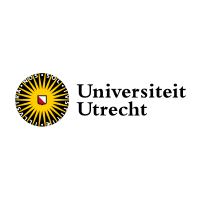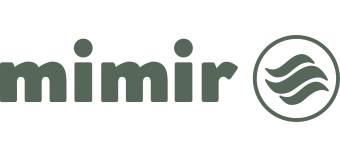
Vacatures geplaatst door Universiteit Utrecht
Mimir verzorgt het geautomatiseerde beheer van vacatures op vacaturebanken voor Universiteit Utrecht.
Laatste vacatures
Programmaleider OvP en trainer sociale, professionele en academische skills
Het departement USBO richt zich in onderwijs, onderzoek en maatschappelijke impact op de studie van besturen en organiseren, gericht op publieke vraagstukken en in wisselwerking met politieke en maatschappelijke ontwikkelingen. Het departement wil mensen opleiden die betekenisvol zijn voor het besturen en organiseren van publieke vraagstukken.
USBO kent een lange traditie in onderwijs voor professionals (OvP). Er is een ruim aanbod van onderwijs, zoals toonaangevende tweejarige executive masterprogramma’s en een leiderschapsprogramma voor diverse sectoren en professionals. Een voorbeeld hiervan is het programma Leiderschap in Cultuur (LinC), dat in samenspraak met de culturele sector, jaarlijks in diverse edities wordt uitgevoerd.
Er is steeds meer vraag naar opleidingen voor professionals en USBO wil haar aanbod de komende jaren uitbreiden. Wij zoeken daarom een programmaleider met ondernemerschap en vaardigheden in het begeleiden van uiteenlopende groepen.
Naast OvP biedt USBO een bacheloropleiding Bestuurs- en Organisatiewetenschap en zeven masterprogramma’s aan. Al het onderwijs is kleinschalig, intensief en interactief. Het bestuderen van de theorie gaat steeds samen met oriëntatie op praktijken, de ambitie om impact te hebben en aandacht voor professionele vaardigheden. We kennen een ruim aanbod van trainingen op het gebied van sociale, professionele en academische vaardigheden. In de bachelorfase betreft dit onder meer trainingen en procesbegeleiding op het gebied van samenwerkingsvaardigheden, gesprekstechniek, conflicthantering en presentatievaardigheden. In de masterfase kan het gaan om advies-, beleids- of managementvaardigheden.
Studenten worden met deze trainingen voorbereid op het professioneel functioneren en het kunnen gebruiken van hun inzichten over besturen en organiseren om van toegevoegde waarde te zijn in de praktijk. In alle trainingen wordt gewerkt aan het ontwikkelen van een reflectieve mindset, waarbij het leren van ervaringen en ontwikkelen van handelingsperspectieven in toekomstige rollen centraal staat.
Voor het vaardighedenonderwijs zoeken we een trainer die breed inzetbaar is in verschillende vormen van vaardighedenonderwijs.
AcademicTransfer
0 sollicitaties
0 views
27-02-2026 Universiteit Utrecht
2 PhD posities bij NWO-VIDI project Data-geïnformeerd onderwijs
De afdeling Educatie heeft een vacature voor 2 PhD posities voor twee gerelateerde onderzoeksprojecten die deel uitmaken van het NWO-VIDI project “Data-geïnformeerd onderwijs: een machtig middel of een machtsmiddel?”, dat wordt gecoördineerd door dr. Anouschka van Leeuwen.
Achtergrond van het project
Studiedata kunnen docenten in het hoger onderwijs helpen om hun onderwijs vorm te geven. Denk hierbij aan data verkregen uit digitale leeromgevingen die inzicht geven in wanneer, hoe, en hoe lang studenten bezig zijn met verschillende leeractiviteiten. Denk ook aan steeds geavanceerdere vormen van AI die docenten suggesties kunnen geven voor het vormgeven van hun onderwijs. Dit roept vragen op over machtsverhoudingen: willen docenten studiedata wel gebruiken, en geeft dit hen niet teveel informatie over studenten? Dit project onderzoekt de complexiteit van dit proces, met aandacht voor de institutionele context, en de impact van data-geïnformeerd onderwijs op de docent-studentrelatie. De antwoorden op deze vragen gaan we omzetten in praktisch toepasbare toolkits voor verantwoorde inzet van studiedata in het hoger onderwijs. Voor dit project zijn we op zoek naar twee PhD kandidaten, die ieder een deelproject op zich nemen.
Deelprojecten
- Deelproject 1: richt zich op de docent in relatie tot het instituut en gaat dieper in op de vraag welke factoren van invloed zijn op docentgebruik van data-geïnformeerd onderwijs in de praktijk. Het onderzoekt de rol van docentkenmerken en institutionele kenmerken. Dit deelproject gaat in op constructen zoals de professionele identiteit van docenten, leiderschap en teamdynamiek. In de tweede helft van het project ontwerpen we interventies voor docententeams om docenten te helpen zich voor te bereiden op verantwoord gebruik van studiedata in de praktijk.
- Deelproject 2: richt zich op de relatie tussen docent en student en onderzoekt de vraag hoe de machtsverhoudingen in die relatie kunnen worden geoperationaliseerd en gemeten, en of en hoe deze worden beïnvloed als docenten data-geïnformeerd lesgeven. De eerste helft van het project gaat over het onderzoeken van deze relaties, en de tweede helft van het project gaat over het ontwerpen van interventies om de relatie tussen docent en student in de context van data-geïnformeerd onderwijs positief te beïnvloeden.
De twee deelprojecten bestaan allebei uit vier studies, variërend van grootschalig kwantitatief onderzoek tot kwalitatieve casestudies op instellings-, cursus-, en docentniveau. Jullie voeren deze studies uit, rapporteren hierover, en zetten de resultaten om in praktijkrelevante producten. Jullie hebben weliswaar je eigen deelproject, maar je zal hierin nauw samenwerken. Het begeleidingsteam van deelproject 1 bestaat uit dr. Anouschka van Leeuwen, dr. Ada Kool, en Prof. Dr. Tamara van Gog. Het begeleidingsteam van deelproject 2 bestaat uit dr. Anouschka van Leeuwen, dr. Annemie Struyf, en Prof. Dr. Jeroen Janssen.
Jouw verantwoordelijkheden:
- onderzoek uitvoeren, waaronder het lezen van wetenschappelijke literatuur, het ontwerpen van meetinstrumenten, het werven van deelnemende instellingen en docenten in het Hoger Onderwijs, het verzamelen en analyseren van kwalitatieve en kwantitatieve gegevens, en het voorbereiden en opslaan van data;
- schrijven van internationale wetenschappelijke publicaties en een proefschrift;
- presentaties geven op nationale en internationale wetenschappelijke conferenties;
- actief deelnemen aan het projectteam en het bredere onderzoeksteam van de afdeling Educatie van de Universiteit Utrecht;
- kennisbenutting: samenwerken en bevindingen delen met partners in het veld (bijvoorbeeld publiceren in vakbladen en creëren van toolkits voor het Hoger Onderwijs);
- cursussen/trainingen volgen in het kader van de ICO Research School (het Interuniversitair Centrum voor Onderwijskunde);
- het geven van onderwijs aan of begeleiden van bachelor-/masterstudenten (max 0.1 fte).
AcademicTransfer
1 sollicitatie
0 views
26-02-2026 Universiteit Utrecht
Wetenschappelijk Ontwikkelaar Centre for Digital Humanities
Binnen de geesteswetenschappen wordt in toenemende mate gewerkt met digitale data en methoden. Ter ondersteuning van onderzoek en onderwijs op dit terrein is in de Faculteit Geesteswetenschappen van de Universiteit Utrecht het Centre for Digital Humanities (CDH) ingericht. Het CDH fungeert als een koepelorganisatie voor diverse onderdelen. In het Research Software Lab worden applicaties ontwikkeld op het vlak van onder andere tekst- en datamining, taalkunde, filosofie, literatuurwetenschappen en geschiedenis. Daarnaast worden in de labs van het Institute for Language Sciences experimentele voorzieningen geboden ter ondersteuning van taalkundig onderzoek met proefpersonen, zoals een fonetisch lab, babylab, eye-tracking lab en EEG/ERP-faciliteiten. Binnen Data School wordt de rol van data en AI in onze maatschappij onderzocht, en hoe zij openbaar bestuur, media en de democratie transformeren. Het ArtLab is een academisch erfgoedlaboratorium dat geavanceerde beeldvorming en 3D-technologie combineert met kunsthistorische en erfgoedexpertise. Het onderdeel PortalDev is verantwoordelijk voor het onderzoeken, ontwerpen, bouwen en beheren van uiteenlopende portals en andere toepassingen ten behoeve van de facultaire onderzoeks- en onderwijsinfrastructuur. Tot slot wordt de infrastructuur die al deze activiteiten mogelijk maakt gebouwd en beheerd door het System Team van het CDH.
Als wetenschappelijk ontwikkelaar verdeel je je tijd gelijkelijk over het Research Software Lab en het PortalDev-team. Je draagt bij aan een scala van projecten, en ontwikkelt toekomstbestendige software die zoveel mogelijk FAIR/open source is.
Taken
- Het zelfstandig en in teamverband bouwen van webapplicaties op maat, zowel front- als backend (full stack);
- Het bieden van eerste- en tweedelijns ondersteuning voor de applicaties die je ontwikkelt;
- Het vertalen van functionele en geesteswetenschappelijke vragen naar technische eisen;
- Beheer en doorontwikkeling van databases en applicaties gerelateerd aan wetenschappelijk onderzoek en onderwijs.
Wij staan open voor initiatieven die jouw ontwikkeling en die van het Centre for Digital Humanities ondersteunen. We bieden je afwisselend werk in een klein en hecht team met een uitstekende sfeer, waarbij we samenwerken op basis van vertrouwen.
AcademicTransfer
12 sollicitaties
0 views
24-02-2026 Universiteit Utrecht
PhD in the economic aspects of water-resilient landscapes
We seek a PhD researcher to conduct high-quality economic research on water-resilient landscapes, with a focus on the economic assessment of Nature-based Solutions (NbS). You will work on an original PhD project embedded in the Utrecht University School of Economics and the interdisciplinary Delta Climate Center, combining rigorous economic analysis with real-world policy relevance. Your research will contribute to academic debates and inform public decision-making on flood risk management and climate adaptation.
Your duties and responsibilities include:
- Developing and executing an original PhD research project on the economic impacts of NbS in water-resilient landscapes.
- Applying advanced economic methods (e.g. DiD, impact evaluation, cost-benefit analysis) using quantitative data and qualitative fieldwork.
- Publishing research findings in peer-reviewed academic journals and presenting them at conferences.
- Collaborating with interdisciplinary researchers and engaging with policymakers and stakeholders.
- Participating in various Delta Climate Centers community meetings and events.
- Teaching (up to 10% of your appointment).
- Contributing to academic life within the Utrecht University School of Economics.
AcademicTransfer
16 sollicitaties
0 views
24-02-2026 Universiteit Utrecht
Projectleider huisvesting faculteit Bètawetenschappen
Onze faculteit is gehuisvest in 12 verschillende gebouwen, met circa 24.000 m² kantoorruimte, 23.000 m² laboratoriumruimte en 23.000 m² onderwijsruimte. Jij richt je met name op onze lab-omgevingen, waar je de belangen en wensen van gebruikers vertaalt naar praktische en uitvoerbare oplossingen. Geen dag is hetzelfde, want je werkt aan uiteenlopende projecten: van kleine labaanpassingen tot grote renovaties en verhuizingen. Je adviseert gebruikers over mogelijkheden en beperkingen, bewaakt de voortgang van projecten en onderhoudt het contact met betrokken partijen. Dit alles mag je doen in een sterk, collegiaal team dat elkaar ondersteunt en waar ruimte is voor ieders inbreng en initiatief.
Je houdt je o.a. bezig met:
- het inventariseren en vertalen van gebruikerswensen naar concrete huisvestingsoplossingen, zodat onderzoekers en studenten goed kunnen werken;
- het begeleiden en initiëren van lab verbouwingen en andere huisvestingsprojecten binnen afspraken over tijd, budget en kwaliteit;
- het organiseren en begeleiden van gebruikersoverleg, om te informeren over voortgang en zodat ieders input wordt meegenomen in plannen en ontwerpen en afwegen van overlast;
- communiceren over voortgang en afspraken met betrokken partijen zodat iedereen op de hoogte is;
- deelnemen aan project- en ontwerpteams voor grotere huisvestingsprojecten, onder verantwoordelijkheid van een projectmanager.
AcademicTransfer
1 sollicitatie
0 views
23-02-2026 Universiteit Utrecht


